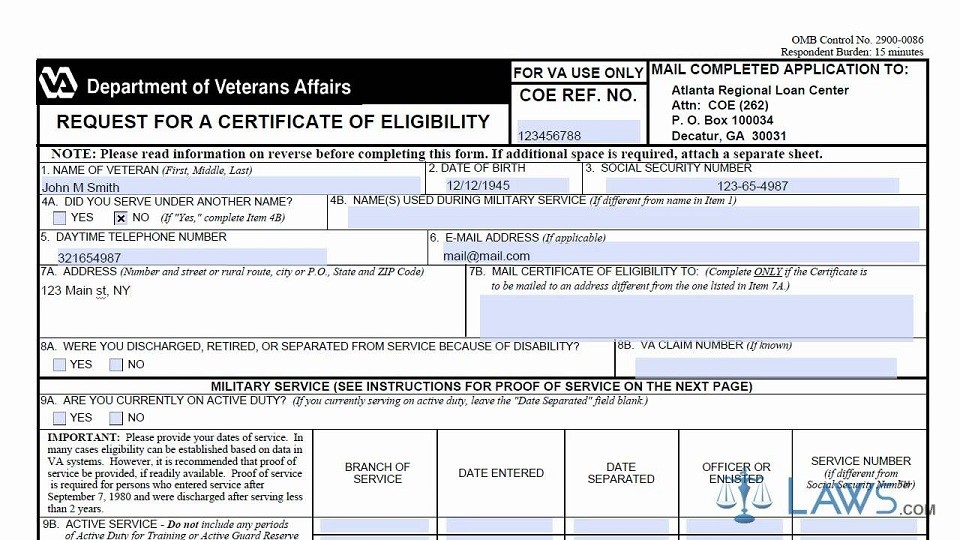VA Loans, Down Payments, and Gift Funds

You may not be required to make a down payment for a VA home loan, but some borrowers choose to do so to lower the amount of the VA loan funding fee and get a lower starting balance on the mortgage. In such cases, a borrower might seek some kind of down payment help to offset the upfront cost. Can a VA borrower accept gift funds from a family member, friend, or employer to help the borrower purchase a home? In general, down payment gifts are common in mortgage loan transactions, but they tend to be heavily regulated.
Why? In most cases, it has to do with a requirement that home loan gift funds not come from third parties with a financial stake in the outcome of the loan. Such gift funds also cannot come from unapproved sources like payday loans.
Down Payment Gift Funds
There are two general “classes” of gift funds for mortgage transactions. One type of gift is the money that a friend or family member might provide to help offset closing costs or the downpayment. This money must be properly sourced; no payday loans, credit card cash advances, or pink slip loans can be used to obtain the gift funds. We’ll discuss that in more detail below.
The other “class” of gift funds is the kind you might be able to obtain from a state or local program. Most states offer downpayment and closing cost assistance programs for low-to-moderate-income applicants who meet program guidelines.
Downpayment help from these agencies may be forgivable, or it may be offered as a loan that is only repaid under certain conditions like selling the home before the loan term expires. But there may be borrower qualifications such as a household income cap or requirements that you buy a property in a “targeted area”.
Not all downpayment assistance programs have such restrictions but many do. It will be important to know what it takes to qualify and under what circumstances you might be required to repay such assistance.
Down Payment Gift Letters Are Required from Your Donor
Your lender will require a “gift letter” from the gift giver certifying the gift is not a loan in disguise; they must declare in writing in a legally binding document that the gift funds came from acceptable sources such as money saved over time, cashed-in investments or bonds, or other sources that do not involve non-collateralized loans or money that cannot be properly sourced by the lender.
Additionally, some lenders may require such gift funds to be “seasoned” or left in a bank account for a minimum period of time such as three months. This requirement may vary depending on the lender.
Contents of the Gift Letter
VA loan rules require the gift letter mentioned above to contain the following elements:
- The donor’s full name and contact information
- The donor’s relationship with the VA borrower
- The dollar amount of the gift
- A donor statement that no repayment is expected
Does the Department of Veterans Affairs permit these gifts for a VA loan? The answer is technically yes, but the funds must meet VA loan program guidelines found in VA Pamphlet 26-7, Chapter Four.
VA Loan Rules for Down Payment Assistance and Gift Funds
As mentioned above, VA Pamphlet 26-7, Chapter Four is the source for guidance about gift funds and down payment help. The first thing you’ll notice about this portion of the VA loan rulebook is that there is a consistent requirement to document the funds, when they are deposited, and the status of that money once it is transferred.
The other rule that plays a big role in how gift funds can be used involves where this money comes from. We already discussed rules about payday loan funds and other non-collateralized loans, but the VA also has strict rules about who can offer these gifts. You are not permitted to provide gift funds for a VA loan if you have any association with the loan as a third party:
- Builders
- Developers
- Real estate agents
- “Any other interested party” to the VA loan
You may not be permitted to provide gift funds if you have an association with any of the above or the lender determines you are otherwise financially affected by the outcome of the transaction.
When gift funds are being provided the lender is required under VA loan rules to “verify that sufficient funds to cover the gift have been transferred to the borrower’s account”, or that the money will be received at closing time.
When the transfer is made the lender needs proof that the deposit was sent (a copy of the check or transfer receipt) and that it was received (a copy of the deposit record for the gift money).
Related:
- VA Updates Veteran Crisis Hotline
- VA Announces End to COVID-Era Delays
- New Limits to MyCAA
- Military Bereavement Policy Updates
- How to Avoid Veteran Mortgage Scams
About the author
Editor-in-Chief Joe Wallace is a 13-year veteran of the United States Air Force and a former reporter/editor for Air Force Television News and the Pentagon Channel. His freelance work includes contract work for Motorola, VALoans.com, and Credit Karma. He is co-founder of Dim Art House in Springfield, Illinois, and spends his non-writing time as an abstract painter, independent publisher, and occasional filmmaker.


